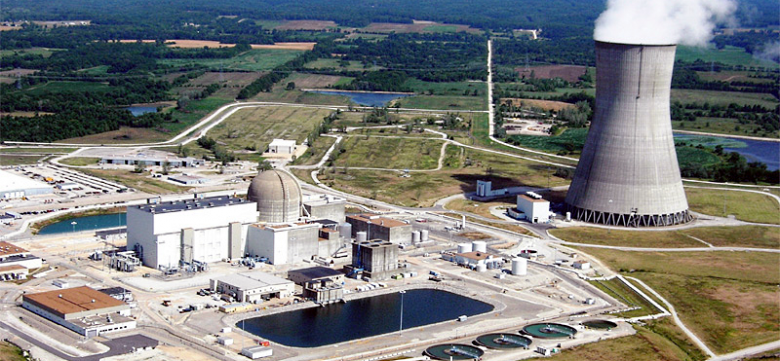
INDIA - VIETNAM NUCLEAR

WNN - India and Vietnam have signed a memorandum of understanding (MoU) to strengthen their cooperation in nuclear energy. The agreement was one of three MoUs signed during Vietnamese President Tran Dai Quang's visit to India.
The MoU was signed on 3 March in New Delhi by Sekhar Basu, secretary of India's Department of Atomic Energy (DAE), and Dang Dinh Quy, Vietnam's deputy minister of foreign affairs. The signing was witnessed by Quang and Indian Prime Minister Narendra Modi.
"The purpose of the MoU is to strengthen the technical cooperation in the field of atomic energy for peaceful purposes," the Indian Prime Minister's office said in a statement.
The MoU calls for cooperation between the DAE's Global Centre for Nuclear Energy Partnership (GCNEP) and the Vietnam Atomic Energy Institute (VinAtom).
The GCNEP is a nuclear research and training centre under construction near New Delhi. The Indian government approved the establishment of the GCNEP in 2010, and construction began on the facility in January 2014. The centre is to house five schools to conduct research into advanced nuclear energy systems, nuclear security, radiological safety, nuclear material characterisation and applications for radioisotopes and radiation technologies. Training facilities are to include virtual reality laboratories and a radiation monitoring, calibration and accreditation laboratory.
VinAtom is a research and development institution under the Ministry of Science and Technology. Formed in 1976, its functions are to conduct fundamental and applied research on nuclear science and engineering, nuclear reactor technology, nuclear fuel and material, radiation protection and nuclear safety, and radioactive waste management technology.
During his visit, Quang also thanked India for extending support to Vietnam in building a research reactor for the peaceful uses of atomic energy.
Vietnam's nuclear plans
In February 2006 the Vietnamese government announced that a 2000 MWe nuclear power plant should be on line by 2020. This general target was confirmed in a nuclear power development plan approved by the government in August 2007, with the target being raised to a total of 8000 MWe nuclear by 2025. A general law on nuclear energy was passed in mid-2008, and a comprehensive legal and regulatory framework is being developed.
Since October 2008, two reactors totalling 2000 MWe had been planned at Phuoc Dinh in the southern Ninh Thuan province. A further 2000 MWe was planned at Vinh Hai nearby, followed by a further 6000 MWe by 2030.
However, in November 2016, Vietnam's legislature endorsed the government's decision to abandon plans to build the country's first two nuclear power plants in favour of renewable energy and power imports amid lower crude oil and coal prices.
-----
Earlier:

2018, March, 4, 11:00:00
RUSSIA - INDIA - BANGLADESH NUCLEARROSATOM - ROSATOM, the Ministry of Science and Technology of the People's Republic of Bangladesh and the Department of Atomic Energy of the Government of the Republic of India signed a Memorandum of Understanding on cooperation in the implementation of the Rooppur NPP construction project in Bangladesh. |

2018, January, 22, 08:15:00
INDIA'S NUCLEAR POWER - 2017WNA - India has a flourishing and largely indigenous nuclear power programme and expects to have 14.6 GWe nuclear capacity on line by 2024 and 63 GWe by 2032. It aims to supply 25% of electricity from nuclear power by 2050.
|

2017, December, 15, 12:55:00
NUCLEAR - 2050: 25%WNN - According to the Foratom statement, World Nuclear Association Director General Agneta Rising said: "By 2050, nuclear energy must account for 25% of energy generation if we are to meet our climate targets. With nuclear making up 11% of generation in 2014, an extra 1000 GWe in nuclear capacity will need to be built by 2050. However, meeting this goal will not be easy." |

2017, November, 9, 13:50:00
EIA: NUCLEAR ENERGY WILL UPEIA projects that global nuclear capacity will grow at an average annual rate of 1.6% from 2016 through 2040, led predominantly by countries outside of the Organization for Economic Cooperation and Development (OECD). EIA expects China to continue leading world nuclear growth, followed by India. This growth is expected to offset declines in nuclear capacity in the United States, Japan, and countries in Europe.
|

2017, September, 13, 15:10:00
IMF: SOUTHEAST ASIA'S TRANSFORMATIONIMF - When we think about Asia’s economic future, we know that this future is being built on strong foundations—on the richness and diversity of its cultures, on the incredible energy and ingenuity of the people who have changed the world by transforming their own economies. China and India have been driving the greatest poverty reduction in human history by creating the world’s largest middle classes. In a single generation, Vietnam has moved from being one of the world’s poorest nations to being a middle-income country.
|

2017, July, 7, 07:35:00
VIETNAM - INDIAN DEALVietnam has extended an Indian oil concession in the South China Sea and begun drilling in another area it disputes with China in moves that could heighten tensions over who owns what in the vital maritime region.
|

2016, May, 23, 20:55:00
АСЕАН: РАСТУЩИЙ РЫНОКМинистр энергетики отметил, что страны АСЕАН являются одними из наиболее быстро растущих в мире по темпам роста объемов потребления энергии. «Сегодня в этом регионе потребляется вдвое меньше энергии, чем в среднем по миру, при этом с 1990 г. энергопотребление выросло в 2,5 раза», - отметил Александр Новак. По его словам, эта тенденция открывает для России «окно возможностей», связанных с поставками энергоресурсов, технологий и оборудования.
|





